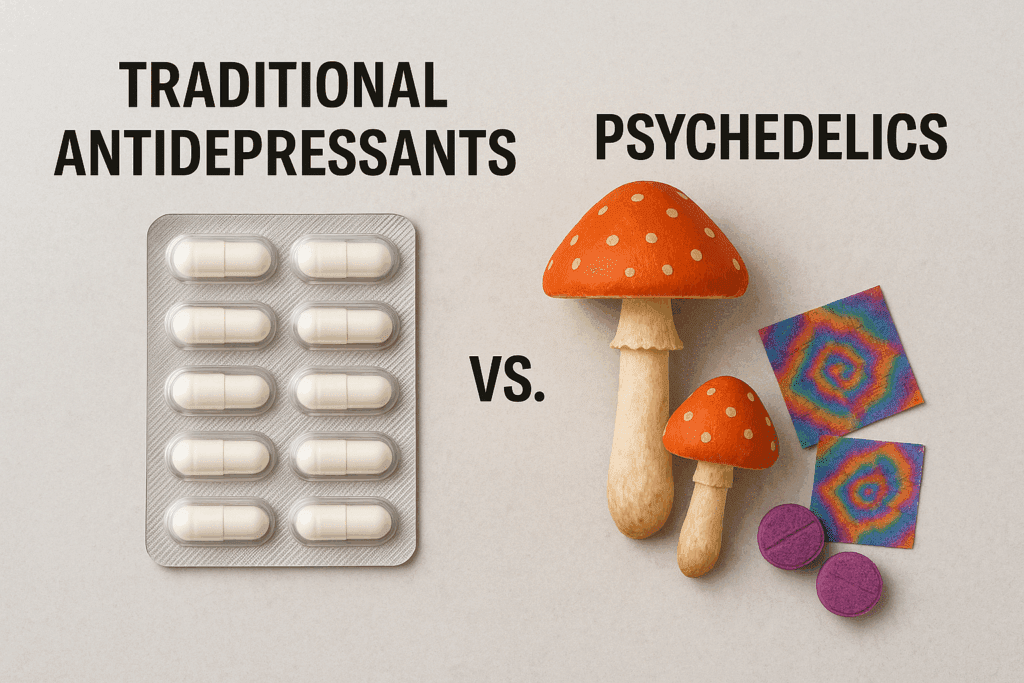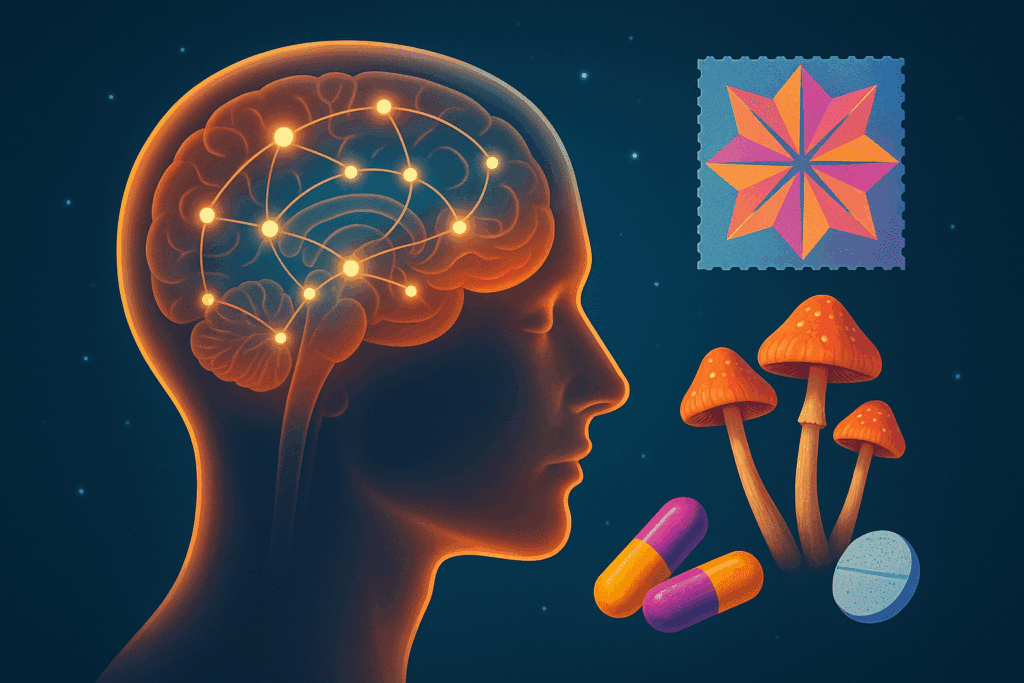
Psychedelics are gaining attention as powerful, rapid-acting antidepressants. Unlike traditional antidepressants that may take weeks to show results, substances like psilocybin and ketamine can relieve symptoms within hours. In this article, we’ll explore how psychedelics work in the brain, why they act so quickly, and what the future of psychedelic therapy looks like.
What Are Psychedelics?

Psychedelics are a class of psychoactive substances that alter perception, mood, and cognition. Common examples include:
- Psilocybin (found in magic mushrooms)
- LSD (lysergic acid diethylamide)
- Ayahuasca (a plant-based brew)
- Ketamine (used both medically and recreationally)
These substances are now being studied for their role in treating depression, anxiety, PTSD, and addiction
Traditional Antidepressants vs. Psychedelics

Most conventional antidepressants, like SSRIs, take 4–6 weeks to work. They gradually increase serotonin levels but do not directly repair damaged neural circuits.
In contrast, psychedelics often produce rapid antidepressant effects within hours to days, offering hope for people with treatment-resistant depression.
How Psychedelics Work in the Brain

1. Serotonin Receptor Activation
Psychedelics like psilocybin and LSD act on 5-HT2A serotonin receptors, enhancing mood and altering consciousness.
2. Neuroplasticity Boost
Psychedelics increase brain-derived neurotrophic factor (BDNF), promoting neuroplasticity — the brain’s ability to rewire and form new connections. This may help “reset” dysfunctional thought patterns.
3. Default Mode Network (DMN) Disruption
The default mode network, often overactive in depression, is quieted during psychedelic experiences. This allows individuals to break free from rigid, negative thought loops.
4. Anti-Inflammatory Effects
Psychedelics reduce brain inflammation, which is linked to mood disorders.
The Role of Ketamine as a Rapid Antidepressant

https://hempearth.ca/shop/Ketamine works differently than classic psychedelics. It blocks NMDA receptors, rapidly increasing glutamate release and strengthening synaptic connections. This can lead to mood improvement within hours — making it one of the most effective rapid-acting antidepressants available today.
Conclusion

Psychedelics offer a new frontier in depression treatment by working rapidly, promoting neuroplasticity, and disrupting negative thought patterns.They hold immense promise for those struggling with treatment-resistant depression.





